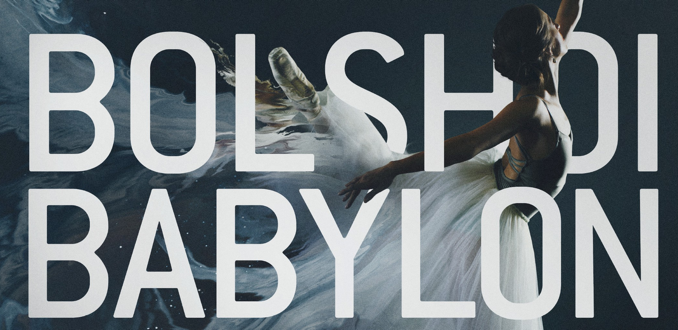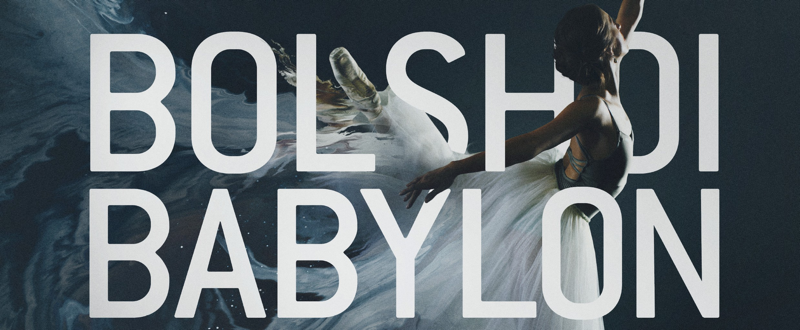
Bolshoi Babylon offers a rare insight into life behind the scenes at The Bolshoi, an insight that is both intriguing and unsettling. The documentary film is set against the backdrop of the 2013 scandal that shocked the ballet world when acid was thrown in the face of Bolshoi ballet’s artistic director, Sergei Filin.
The film begins in a somewhat sensationalised style. Footage of stage performances shot from the wings, the ballerinas awaiting their entrance, is intersected by fragmented re-enactments of the night Filin was attacked. You wonder how realistic a portrayal of Bolshoi life this film will be, but it seems the opening is purely for dramatic impact and as the film settles in to a documentary approach it becomes clear that life at the Bolshoi needs no dramatisation.
Much of the focus is on the attack and the ensuing effect this had on the company, but it also provides a rare behind-the-scenes glimpse in to the lives of the dancers and the running of, arguably, the most famous ballet company in the world.
Following newly appointed manager of the Bolshoi theatre, Vladimir Urin, for much of the film, it becomes evident that running the Bolshoi is a difficult job to contend with. The Bolshoi is more than just a ballet company and opera house; it is an institution in itself and the importance of the Bolshoi to Russia is made clear, the film emphasising the company’s political connections and close relationship to those in power. In the words of Russia’s Prime Minister, Dmitry Medvedev the Bolshoi is the country’s secret weapon . As an international symbol of Russia, an acid attack on the Bolshoi’s artistic director is much more than an attack on the ballet world. Through this film we begin to see the significance of The Bolshoi to Russia – a symbol, company and art form held close to its nation’s heart.

The attack on Filin created a divide in the company or at the least emphasised divides and alliances already in existence. It’s not long into this film before you begin to understand the competitiveness and the toughness of life, especially for the dancers, in this world-famous company. As dancer Anastasia Maskova says ‘we live more in the theatre than the outside world, much of what happens on stage we drag into our lives’. Ambition, egos, passion and a life-consuming commitment are all part of life at the Bolshoi.
At times the picture is bleak, frightening even, particularly when you see the press and media attention the company receives following Filin’s attack. From the outside it seems incredible that a company member would be prepared to go to such lengths out of resentment or to make a statement, but through Bolshoi Babylon we glimpse an understanding of the tensions within this company. The reality, and in many senses brutality, of life at the Bolshoi is at odds with the beauty of the ballet we see; in class, on-stage and within the theatre itself.
The relationship between Filin and Urin is tenuous at best. Urin’s bold, no nonsense approach is not always taken well and there’s a particularly tense moment during a company meeting; a scene which makes their power struggle evident. You find yourself constantly switching between who is good and who is bad. True to life nothing in Bolshoi Babylon is painted as black or white and once it gets past the dramatic opening scenes, the film feels incredibly real and honest. It doesn’t attempt to hide anything and, in fact, it seems amazing that this film has been able to reveal so much of life at the Bolshoi, especially during such a difficult period for the company. In the end you don’t know whether to feel hope or trepidation for the Bolshoi.
Whatever opinion you shape of the Bolshoi and the ballet world there’s a sense of coming change and new beginnings. It’s evident that not everyone will agree, but the film ends on a comparatively positive response from the dancers and an overriding sense that the Bolshoi’s steely determination will enable it to continue as before. In the words of the Bolshoi’s ballet master, Yuri Grigorovich, ‘the theatre is like an ocean liner, it just keeps moving on and on.’ Under Urin’s directorship it seems that the Bolshoi will, as it has always done, steer through the storm and there’s a hopeful guarantee that it will emerge as good, if not better, than ever; a treasured and steadfast icon of Russia.
by Rachel Elderkin

Leave a Reply